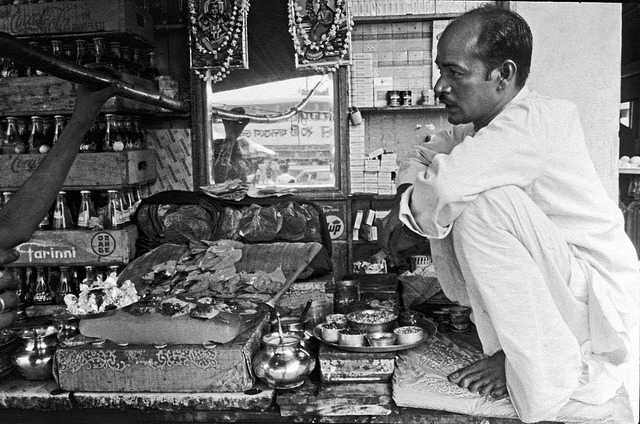
Chewing paan and spitting in public places will soon be a part of the history in Maharashtra.
The state health department on Monday revealed its plans to ban smokeless tobacco in public places and impose a fine on people who violate the new regulation that will come into effect on 1 August, The Indian Express reported.
Hospitals, railway stations, airports, educational institutions, public offices, court premises, libraries, canteens, amusement centres and banks are some of the places included in the list.
"We are in the process of creating a penalty system for people found chewing tobacco or spitting it in public," State principal health secretary, Sujata Saunik, told the daily. "Since gutka and paan masala are banned in Maharashtra, even they will be included under the purview."
The new regulation is primarily aimed at preventing many deadly diseases including TB from spreading among citizens. "It will reduce the menace of spitting, which can contribute to the spread of many diseases," Saunik, told The Times of India.
Smoking in public places is already banned in India. Though the rule was first enacted in 2003, a revised rule in 2008 made smoking in public places a punishable offence with a fine up to ₹200.
Data shows that India is the second largest consumer of tobacco products across the whole world. Nearly 275 million people are addicted to tobacco in India and almost 40 percent of the total population in India is infected with TB bacteria.
The Global Adult Tobacco Survey conducted in India between 2009 and 2010 found that, 42.5 percent of the Maharashtra population used tobacco, of which 30 percent preferred smokeless tobacco. Another study reported in The Lancet in August 2012, reported that 206 million Indians used smokeless tobacco.
Tobacco use in India has been a source of concern lately. A report on the economic burden of tobacco-related diseases in India, released by the Public Health Foundation of India (PHFI) in May 2014, estimated that India spent ₹1,04,500 crore for managing tobacco-related diseases in 2011. Apart from that, tobacco products also led to a medical burden of ₹16,800 crore, indirect morbidity cost of ₹14,700 and premature mortality cost of ₹73,000 crores on the country during the same period.
It is also estimated that tobacco will claim 1.5 million lives annually by the year 2020.













!['It's not Mumbai traffic, it's air traffic': Suriya apologises to Mumbai media after paparazzi yelled At Him for making them wait for hours [Watch]](https://data1.ibtimes.co.in/en/full/806234/its-not-mumbai-traffic-its-air-traffic-suriya-apologises-mumbai-media-after-paparazzi.jpg?w=220&h=138)



